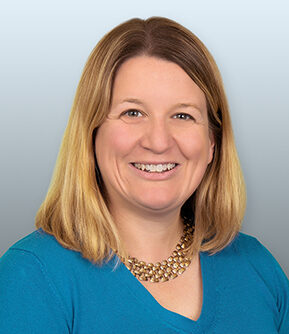New OIG Opinion Permits the Provision of Free Nurse Practitioner Services by a Hospital to Referring Physicians
The Office of the Inspector General (the “OIG”) issued Advisory Opinion No. 22-20 on December 14, 2022, in which it determined from facts and circumstances presented that an acute care hospital providing physicians with the services of the hospital’s employed nurse practitioners without charge presents a minimal risk of fraud and abuse under the federal Anti-Kickback Statute (the “AKS”).
The Requestor, an acute care hospital, offers a program whereby it provides its employed nurse practitioners to assist in rendering certain care to patients of physicians who participate in the program (“Participating Physicians”) when the patients are inpatient or in observation status in one of two general care units (critical care and cardiology). Participating Physicians can be employed by affiliates of the Requestor or be independent of the Requestor’s system. Participating Physicians are largely primary care physicians. The nurse practitioners provide a wide range of tasks, some of which would otherwise have to be performed by the Participating Physicians. By participating in the program, the Participating Physicians’ patients receive improved care because the nurse practitioners are readily available to evaluate patients quickly and efficiently. Participating Physicians must remain in communication with the nurse practitioners, must still round daily and must maintain ultimate accountability for patient care. Participating Physicians may not bill for the services provided by the nurse practitioners. Further, Participating Physicians must conduct their own assessments and generate their own documentation in order to bill for their own services; they may not rely on the nurse practitioners’ services or documentation in connection with billing for physician services. The Requestor does not bill any payor for the nurse practitioner services.
The AKS makes it a criminal offense to knowingly and willfully offer, pay, solicit or receive any remuneration to induce, or in return for, the referral of an individual to a person for the furnishing of, or arranging for the furnishing of, any item or service reimbursable under a federal health care program. “Remuneration” includes the transfer of anything of value, directly or indirectly, overtly or covertly, in cash or in kind. In the arrangement at hand, the Requestor is providing Participating Physicians, who refer to the Requestor, with the free professional services of nurse practitioners. By participating in the program, the Participating Physicians are relieved of responsibilities they would otherwise have to perform, saving them time and/or resources. Therefore, the Requestor is clearly providing remuneration to referral sources. Nevertheless, the OIG determined the arrangement presents a minimal risk of fraud and abuse under the AKS for the following reasons:
- The program is only for general care patients, and Participating Physicians are predominantly primary care physicians. The OIG stated that it may have reached a different conclusion if the arrangement involved surgical or specialty units where referrals are more lucrative.
- Any compensation paid to Participating Physicians outside of this arrangement does not reflect or take into account the nurse practitioners’ services.
- The Requestor certified that it does not take into account a physician’s volume or value of expected or past referrals when offering the arrangement.
- The arrangement contains safeguards to lower the risk of fraud and abuse including:
- Nurse practitioner duties are done in communication and collaboration with the Participating Physician.
- The Participating Physician still must round daily and maintain the same accountability for patient care.
- No payments are made to the Participating Physicians, and there are no ancillary arrangements with the Participating Physicians to induce or reward referrals
- Participating Physicians can only bill for services for the work they have actually performed and documented and are prohibited from billing for the nurse practitioners’ services. (The OIG noted that an arrangement would be suspect if the physicians were allowed to bill payors for the nurse practitioners’ services.)
- The arrangement is unlikely to increase costs to federal health care programs since no payors are billed for the nurse practitioners’ services.
- The arrangement increases the quality of patient care because the nurse practitioners are available to actively monitor and evaluate the patients on an ongoing basis through the day, including providing real-time response to changes in condition. This allows patients to receive diagnoses and treatments as soon as practicable.
The OIG’s conclusion is consistent with its previous determinations regarding the provision of free pre-authorization services by radiology groups to referring physicians. Using a “facts and circumstances” analysis each time, the OIG determined such arrangements do not present a high risk of fraud and abuse. Therefore, although OIG advisory opinions cannot be relied on by anyone other than the Requestor, this advisory opinion adds support to the conclusion that professional and administrative services outside of those covered by AKS safe harbors can be provided for free to referring physicians without violating the AKS if certain protective parameters and other safeguards are incorporated.


